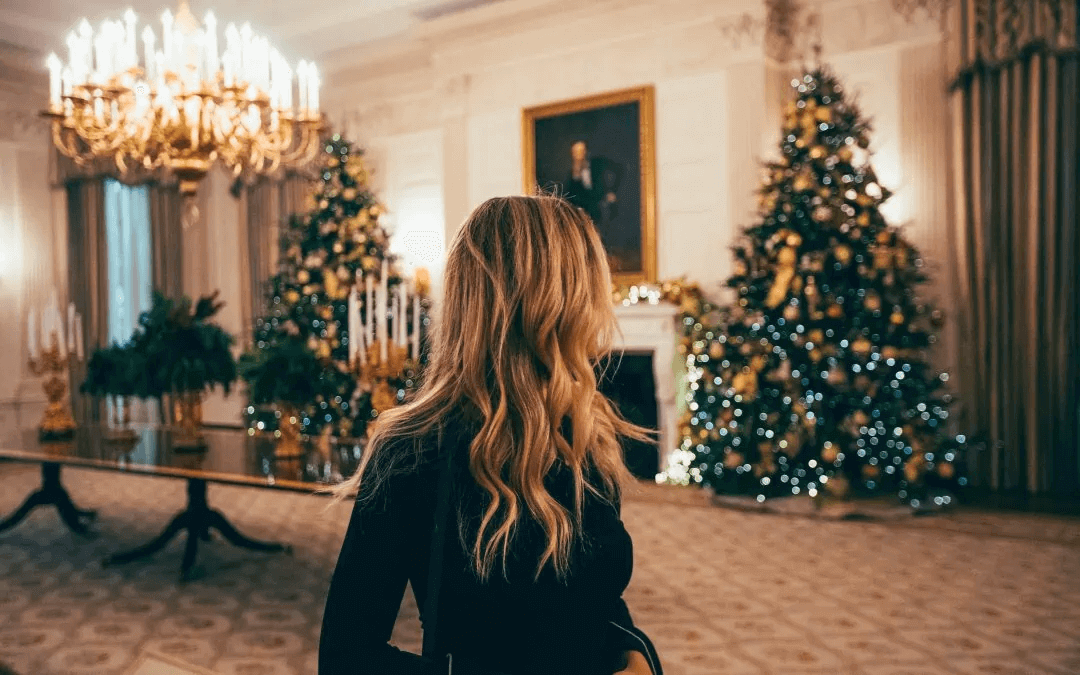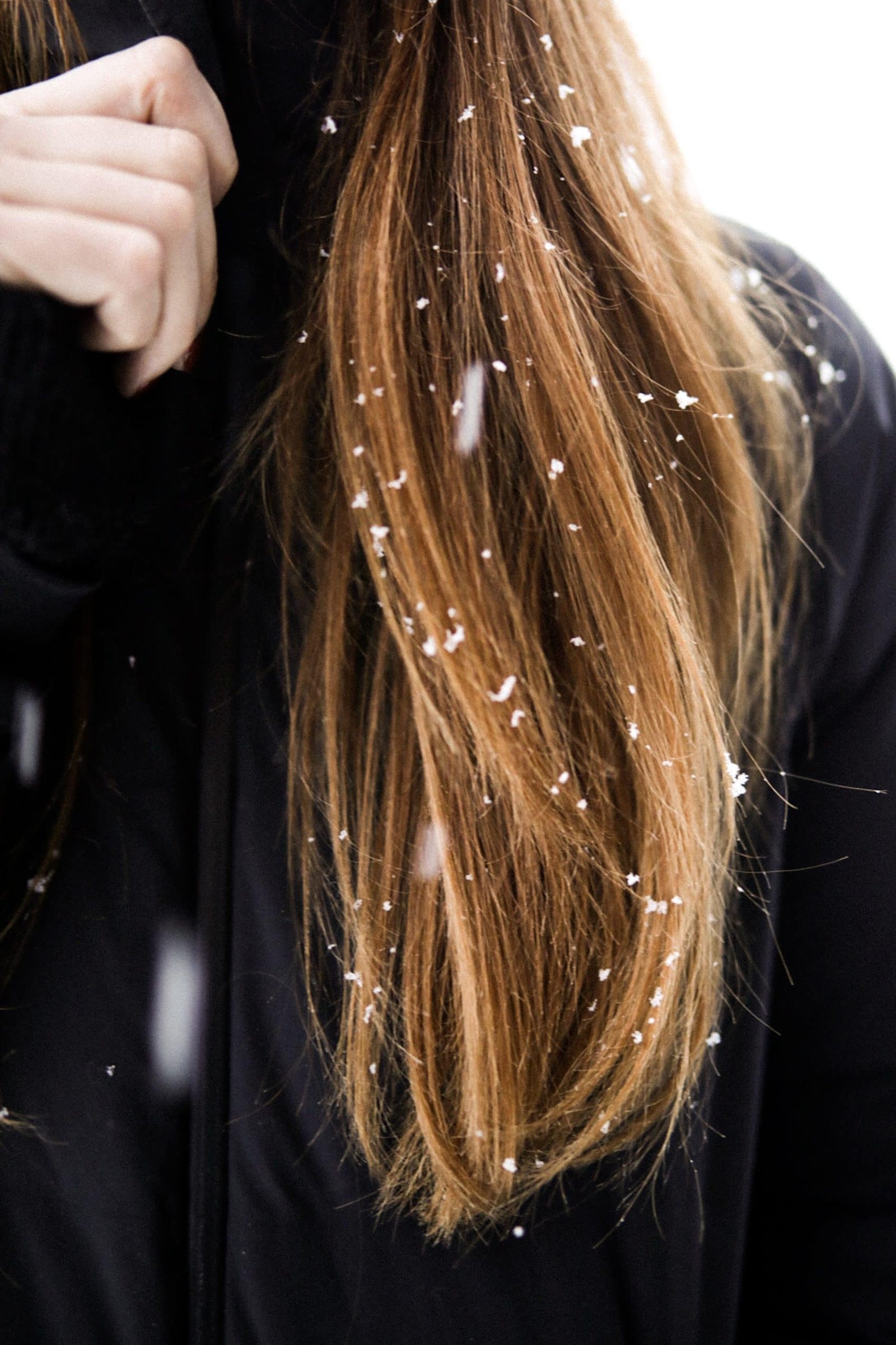
There’s no doubt that winter brings drying conditions for our hair. Cold weather and central heating can cause our follicles to break more often, turn brittle and lose sheen. But when it comes to winter hair extensions and protecting your hair extensions in the colder months, you need to care for them just as you do with your natural hair.
How To Keep Your Winter Hair Extensions Looking Fresh
There’s no doubt that winter brings drying conditions for our hair extensions. Just like your natural hair, cold weather and central heating can cause hair follicles to break and in turn make hair extensions look dry and lose their initial shine.
But most people forget that hair extensions are real human hair, and just like your natural hair, hair extensions need to be washed and conditioned regularly to keep them from tangling and looking worn in.
In this winter hair extensions survival guide, hair extensions specialist Louise provides her top tips for hair surviving the colder months and tells us all the winter hair fixes you need to know to take care of your hair extensions in the colder months…
How To Keep Your Hair Extensions From Drying Out
Human hair extensions can go dry and frizzy because they are not receiving any sebum (oil) from your scalp. As hair extensions are not attached to your scalp, they don’t receive any of this natural oil and as a result can make your extensions feel dry over time.
Tape extensions are the most durable hair extension method and the most popular in winter. Just like your natural hair, tape-in hair extensions require brushing, sulphate free shampoo & conditioner and proper care to stay flawless.
While clip-ins require the least amount of maintenance, they still require a little love. After each 6th to 8th time wearing them, they should gently washed, combed and conditioned and allowed to air dry to keep them looking their best.
Most reputable salons, such as Beauty Club London, will be happy to give you advice on your extension maintenance, and recommend the best products for your hair type.

Turn The Temperature Down
While it may be tempting in the colder months to have a hot shower to warm yourself up, the heat of the water can damage and dry out your hair. While washing your hair carefully, turn the shower water temperate down to lukewarm and finish off your shampoo with a burst of cold water to close your hair follicles – this will help protect your hair.
Also when caring for your hair extensions, make sure you use sulphate-free hair care products. A lot of shampoos and conditioners contain sulphates and chemicals that strip the hair of its natural oils, dry it out and damage the cuticle layer.
As your extensions will not get a top up of natural oils from the scalp as your natural hair would, it is important that you take steps to protect them and make use of sulphate-free hair care products when washing your extensions. If you need help deciding the products that you should get, contact Louise, who can advise on the best hair care products and treatments for hair extensions.
Tame Frizz
Human hair extensions can go dry and frizzy because they are not receiving any sebum (oil) from your scalp. As hair extensions are not attached to your scalp, they don’t receive any of this natural oil and as a result can make your extensions feel dry over time.
Not only does the winter weather have an annoying habit of making your hair super frizzy and static, but so do the winter clothes we wear. But don’t let your hair put you off wearing your favourite Christmas jumper! Tame frizz and static hair with a good hair oil for the ends.
It can be tempting to attack dry hair with extra-moisturising shampoo and conditioner in winter but you need to make sure that the hair products you are using aren’t going to react with your hair extensions’ tape tabs. Avoid greasy hair products, and apply conditioner from the ends up, avoiding the roots. This will also help smooth out your hair and keep your extensions in place for longer.

How Can I Cover My Hair In Winter?
Don’t let your hair extensions stop you from wearing a hat – if anything, a scarf or head covering will protect your hair extensions.
It is important to cover your hair during the winter months to shield it from the moisture-robbing dry air, snow, wind, and rain. The cold weather and damp air can make your natural hair and hair extensions frizzy. And the elements dry your hair out, making it more prone to breakage.
The best way to protect your hair when going outdoors is wearing a headscarf or hat made of satin or silk linings as they do not absorb moisture and do not allow strands of hair to rub together.
Heat Protection
Most people tend to let their hair dry naturally in summer but it’s far too cold to be walking around with damp hair in the winter. This is why we usually end up using more heat such as hair dryers during winter months.
As we all know, heat can be so bad for your hair so make sure you’re using heat protection before you blow dry your hair. And when using a hairdryer, keep it to the lowest setting to minimise the risk of drying out your hair extensions.
We are also a nation addicted to straighteners and curling irons. If you must apply this sort of heat to your hair, use a heat protecting spray which is suitable for hair extensions.
Brush With The Right Tool
The quickest way to damage your extensions is to overbrush them. Before brushing, washing or styling your hair, run a wide paddle brush through your extensions to remove any tangles. This will also help to prevent split ends and frizziness.
With the very best hair extensions that Louise uses, matting and shedding will be the least of your concerns. But unfortunately, tangling of hair extensions is still an issue that gets aggravated during the colder months. You can take care of tangling hair extensions through gentle brushing but be gentle and always brush from the roots to the tip.
Sleep Protection
During the night, whether we know it or not, we toss and turn constantly. If you have long hair extensions, you can wake up to find them in a tangled mess. Avoid night-time damage to your hair by tying it back in a loose plait or bun before you go to bed – don’t forget to use a soft hair tie such as a scrunchie to prevent breakage.
About Us
The highest quality hair extensions combined with Louise’s expert knowledge, application, blending and cutting skills make her one of the UK’s leading hair extension specialists.
Can we help you?
